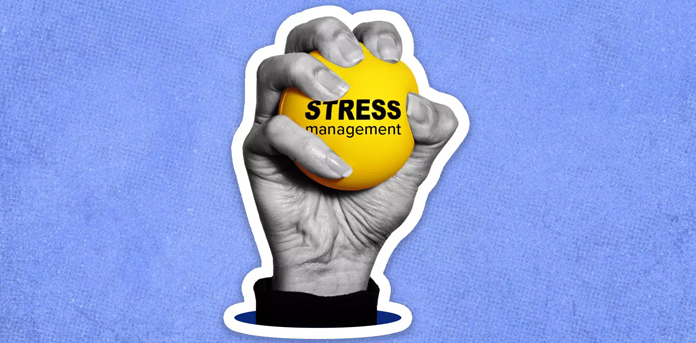In the quest for weight loss, don’t undervalue the power of stress management. Stress can greatly slow down your progress, but with the proper strategies, you can recover control over your body and your goals. By understanding the relationship between stress and weight loss and effective stress management techniques, you’re on your way to achieving a healthier, happier you.
The Role Of Stress In Weight Loss: Understanding The Intricacies

Stress is a complex phenomenon that can greatly affect different aspects of our lives, including weight loss. The relationship between stress and weight loss is not only about emotional eating and unhealthy habits; it extends deep into our physiological and psychological means. Let’s shed light on why stress can be a challenge for those trying to shed pounds:
Hormonal Responses And Cortisol
Cortisol, usually referred to as the “stress hormone,” plays a major role in the stress-weight loss connection. In reaction to stress, the body releases cortisol, a hormone that trains us to handle possible threats. However, prolonged or chronic stress can lead to consistently advanced cortisol levels. This wave in cortisol starts a series of reactions that affect weight loss efforts in several ways:
- Fat Storage and Abdominal Obesity: High cortisol levels have been related to increased fat storage, especially around your abdominal area. This sort of fat is known as visceral fat. It is not only irritating but also linked with a higher risk of various health problems such as cardiovascular disease and diabetes.
- Metabolism Disturbance: Cortisol can affect metabolism, leading to decreased efficiency in calorie burning. This deceleration in metabolic functions makes it more difficult to create a calorie deficit, a key element of weight loss.
Adrenaline And Appetite Regulation
Another stress hormone that is important is adrenaline. It is also known as epinephrine. Adrenaline is accountable for the “fight or flight” response, training the body for quick action in reaction to perceived dangers. While adrenaline’s direct role is not linked to weight regulation. However, its impacts on appetite and food choices can indirectly affect weight loss:
- Appetite Suppression: Stress can result in temporary suppression of appetite due to the release of adrenaline. This can result in missed meals or decreased food intake, which might seem good for weight loss. However, long suppression can lead to imbalanced nutrition and inadequate energy levels, affecting overall health.
- Unhealthy Food Cravings: On the other hand, chronic stress can activate cravings for unhealthy foods extra sugar, salt, and unhealthy fats. This is usually directed to emotional eating, where individuals choose food as a coping method for stress, anxiety, or negative emotions.
Emotional Eating And Unhealthy Habits
When stressors become overwhelming, individuals choose food as a source of comfort and distraction. Emotional eating usually results in eating calorie-dense, nutrient-poor foods, which can slow down weight loss efforts. This act can lead to a vicious cycle: stress activates emotional eating, which may lead to guilt and further stress, perpetuating the cycle of unhealthy habits.
Disrupted Sleep Patterns
Chronic stress can also affect sleep patterns, leading to poor quality sleep or sleep duration. Sleep is a critical factor in weight management, as it involves various hormones related to hunger and satiety.
Effective Stress Management Strategies For Weight Loss

Controlling stress effectively is not only helpful for weight loss but also for overall well-being. Here are compelling stress management techniques for weight loss:
- Regular mindfulness meditation will help you reduce stress and promotes emotional well-being.
- Practicing deep breathing exercises will calm your nervous system and lowers stress levels.
- Engage in a combination of aerobic exercises such as running, and swimming and strength training like weightlifting and yoga to release endorphins and relieve stress.
- Nature walks, hiking, or outdoor activities can provide a stimulating change of scenery and boost mood.
- Set a constant sleep schedule. Aim for 7-9 hours of sleep per night.
- Include nutrient-rich foods such as fruits, vegetables, lean proteins, and whole grains.
- Pay attention to hunger and satiety cues, and savor each bite to stop overeating.
- Drink enough water throughout the day to stay hydrated and support overall well-being.
- Set realistic goals and break them down into manageable steps to prevent overwhelm.
- Practicing yoga combines physical movement with mindfulness, helping to alleviate stress and improve flexibility.
- Try Tai Chi because it is a low-impact martial art that combines movement and relaxation, promoting stress reduction and balance.
- Practice Box Breathing. Inhale for a count of four, hold for a count of four, exhale for a count of four, and pause for a count of four.
- Consider therapy or counseling to learn coping strategies and gain professional guidance in managing stress.
FAQs
What is the connection between stress and weight loss?
Stress can lead to high cortisol levels, boosting fat storage, especially around the abdomen. Also, stress may trigger emotional eating, causing unhealthy food choices and overeating. Chronic stress can disbalance metabolism and sleep patterns, making weight loss more challenging.
How does stress-eating impact weight loss?
Stress-eating, or emotional eating, affects consuming comfort foods in reaction to stress. This habit can lead to eating excess calories and delay weight loss progress. Identifying triggers and practicing mindfulness can help control stress-induced eating patterns.
Are there simple stress relief techniques that can aid weight loss?
Yes, there are several quick methods. Deep breathing exercises, like the 4-7-8 technique, can calm the mind. Taking short walks outdoors, practicing gratitude, and engaging in brief stretching sessions can also provide instant stress relief and support your weight loss journey.

